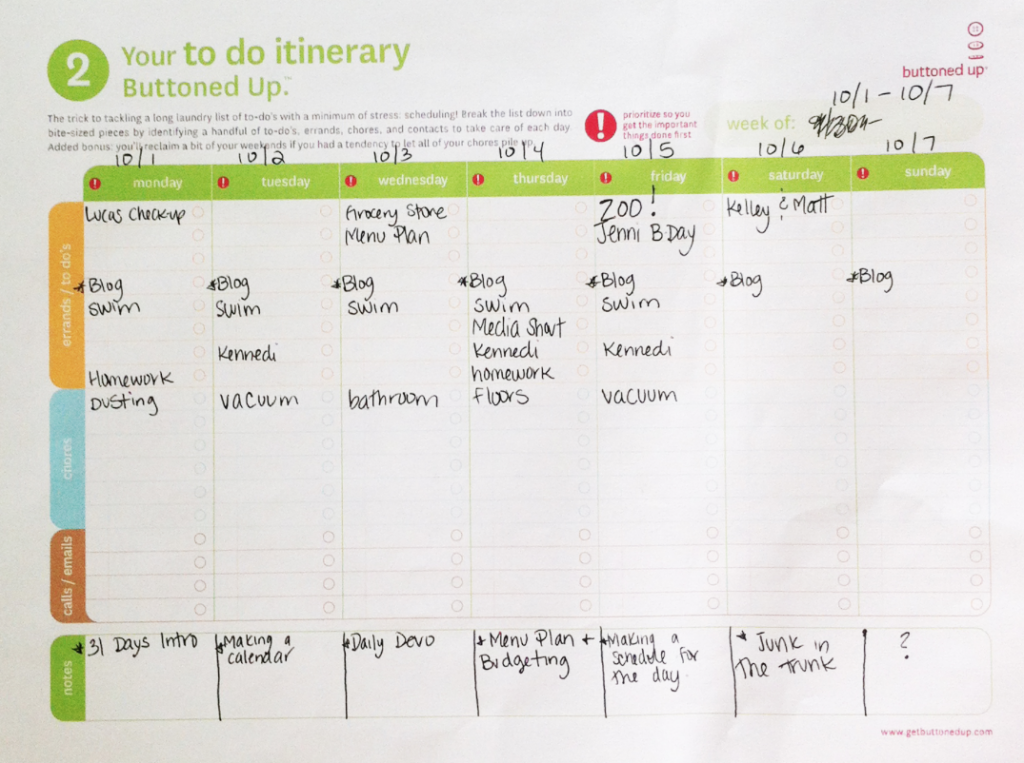Making to-do lists could very well be a wasted of time. We all have our ways of strategically laying out our goals, and sometimes accomplishing those goals never progresses past the mere thought of accomplishing them. To-do lists, according to Daniel Markovitz, only set you up for failure and frustration. He gives five fundamental problems with to-do lists

Giving Yourself a Choice
Sometimes, having too many choices just causes more problems. Barry Schwartz and Sheena Iyengar explored the problems created by multiple choices. Schwartz pointed out that the increasing number of choices we have results in an increasing number of negative emotions. Why? Because our sense of opportunity cost increases, which means we feel more anxiety about not making the right decision. It’s like the scene in ACME cartoons where the cartoon has 8 different doors to pick from. One door is the right door, but which is it? And what’s going to pop out of the other 7? Most of us would not be the happiest camper in that type of situation.
the cartoon has 8 different doors to pick from. One door is the right door, but which is it? And what’s going to pop out of the other 7? Most of us would not be the happiest camper in that type of situation.
Iyengar also performed complementary research on when a choice is demotivating, and explored the question of if one can desire too much of a good thing. She found that our brains have a maximum of seven options before we start to become overwhelmed. I found it shocking that there was actual a set numerical value of the amount of choices we can process. Apparently, it’s easier for use to make decision when there are choices to choose from.
Heterogenous Complexity
A to-do list always has a variety of tasks. Initially, when you create your to-do list for the month (or for the year, if you want to be really ambitious) you probably have the most important issues in mind.
- Pick out a caterer for my wedding
- Finish writing my memoirs
- Put a sauna in the basement
- Clean my keyboard and computer
- Mow the lawn
- Go buy toilet paper and laundry detergent
- I’ve done it hundreds of
 times.
times. - I know exactly how long it will take me.
- I don’t have to use my brain while I do it. I can drift off into some day dreaming alter-reality where I’ve won the lottery and I’m looking at Navy Pier through my penthouse at the top of my Chicago lake-side high-rise.
Heterogeneous Priority
Along with our tendency to do the easier tasks on the lists, we also tend to take care of the “A” priorities over the “B” and “C” priorities. These leaves anything that isn’t a top priority to sit on the back-burner until it becomes the most important. Look at your to-do list and try to figure out the longest item that’s been on there. A couple months? A half-year? A year?
Remember, everything on that list is on it for it reason: It has to eventually get done. Instead of prioritizing, make a schedule or date that it must get done by, and be realistic. If you have something on your list that doesn’t need to be completed anytime soon, maybe you should consider taking it off or moving the date up closer. Either way, giving yourself a date of completion puts pressure on you and helps you stray away from a priority-based mindset.
You could also tell your friend or spouse about your to-do list. It was proven that making goals public helps to increase motivation and success rate in completing the goals. Maybe putting up a calendar in the pantry or kitchen that shows when you have to complete something would keep you going. Or adding your goals and due dates to your computer calendar that’s synced to you and your spouses smart-phones.
Bringing someone else into the mix helps because it makes the goal more real. Have you ever told yourself you’d do something, then justify not doing it with the thought “no one will ever know anyways, and i’ll just get it done later”. You can’t have that justification with this practice, and usually, when you tell someone you’re going to achieve something, they don’t forget it, and will ask you if you succeeded come judgement day.
Lack of Context
To-do lists don’t provide a description that’s worth describing certain tasks. Some tasks are enormous, others are minute. The big ones require viral pieces of information, such as how long will it take? And how much time do you have available to complete it? Instead, to-do lists simply list the task using three to four words. This doesn’t properly encompass the essence of the task, the reason for it, and several other factors that should be considered when deciding on what to work on.
Lack of Committment Devices
To-do lists have no way of preventing you from doing the most pleasant task over the toughest one. This lack of commitment devices allows you to roam free through the list and pick out the easy ones, while the tough ones remain unscathed and unconsidered. Markovitz gives an example of how the Chinese general Han Xin used geography as a commitment device: He placed his soldiers at the edge of a river with their backs to it, so they couldn’t run away from the enemy.
Another example is going for a run. When you run 2.5 miles away from your home, you’re committing to running 2.5 miles back, making it a total of 5 miles. The further you run away, the stronger your making your commitment device. The commitment device for to-do lists is, again, the calendar. When you translate your to-do list into your calendar, you create a production plan, rather than some random list of things to do.
Markovitz says that this technique will help you overcome all five of the downfalls of the to-do list. It will eliminate the paradox of choice, not let you pick the easiest tasks to complete or rank them in order of importance, each task will stand alone and be described in as much context necessary, and it will be placed directly into a commitment device based on time and due dates.
As I have stated before, letting others know about this commitment device will only strengthen it’s power and put pressure on you to complete it. If you sit down with your significant other and tell them why you want to complete each task and how you’re going to do it, you’ll be able to brainstorm possible solutions and ways to go about it. You can also meet after the due date and follow-up on what you’ve completed and what you haven’t, and if you didn’t complete it, figure out a reason why. This makes you more aware of your productivity and will help you the next time around.
Trevor Micklow is a business writer and content curator based out of Chicago, IL. US. He specializes in digital strategies, social media, psychology, executive education and business school related topics. He has been working and coordinating the general content of IntelligentHQ’s business school directory, which gives key information and programme details on the top business schools in the world. He has a BS, Psychology from Central Michigan University.











